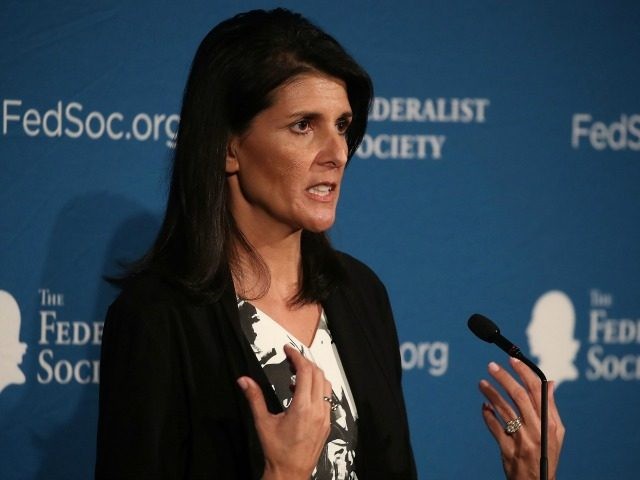WASHINGTON — Gov. Nikki Haley, the prospective United Nations ambassador under the incoming Donald Trump administration, declined to support the United States unilaterally backing out of the Iran nuclear deal.
The South Carolina governor supports holding Iran accountable for violations of the deal, formally titled the Joint Comprehensive Plan of Action (JCPoA), using punitive provisions in the agreement.
During her confirmation hearing before the Senate Foreign Relations Committee, former vice presidential candidate Sen. Tim Kaine (D-VA) grilled Haley for her response to his question, “Would you support the U.S. unilaterally backing out of the Iran deal at this point?”
“I think what would be more beneficial at this point is that we look at all the details of the Iran deal. We see if they’re actually in compliance; if we find that there are violations, then we act on those violations and I think that watching that very closely is important,” responded Haley. “What we did is we gave the state sponsor of terrorism a pass that, even after 10 years, they will not be held to any sort of prohibitions to building nuclear weapons and we gave them billions of dollars to do it.”
“I would encourage you to read the agreement because what you just stated about the agreement is quite inaccurate,” Sen. Kaine fired back. “There are many, many restrictions in the agreement after 10 years, specific restrictions in perpetuity. The first paragraph of the agreement says that Iran, pursuant to the agreement, will never seek to develop, acquire, or otherwise construct a nuclear weapon, so the notion that there’s no restrictions after 10 years — I don’t know where you got that from.”
Trump has been a staunch opponent of the Iran nuclear deal, emphasizing that he considers it “one of the worst deals ever made” in a recent interview with the Times of London and Bild newspaper of Germany.
Asked by Sen. Chris Murphy (D-CT) about Trump’s worldview being “the exact opposite of what you are articulating it to be,” Haley indicated that the incoming president may modify some of his positions after he takes office on Friday.
“Not all of it will change after Friday, but I will control the part of it I can,” at the UN, she told lawmakers.
Sen. Kaine went on to say that the billions of dollars that administration of President Barack Obama has given to Iran as part of the deal is from their own frozen assets — money that already belongs to the Islamic Republic.
Obama drew sharp criticism when he gave Iran $1.7 billion in cash to circumvent sanctions as part of the nuclear deal.
“The notion that we gave them money, we didn’t give them anything. There was money that was Iran’s that had been frozen,” Kaine told Haley. “We released access so that they could get money that was theirs in exchange for their agreement to restrict their nuclear weapons program and guarantee in perpetuity not only not to have nuclear weapons but allowed inspections by the International Atomic Energy Agency [IAEA]…”
“So I would encourage you to read the agreement because, if you think those things, I can see why you’re against it and I can see why you might want to back out of it,” he emphasized.
Iran and world powers led by the Obama administration reached the nuclear agreement in July 2015.
Under the deal, Iran committed to a 10-year limit on its nuclear program in exchange for relief from international sanctions.
The Government Accountability Office (GAO), known as the investigative arm of Congress, noted in February 2016 that the independent IAEA is facing “potential challenges” in monitoring and verifying Iran’s adherence to its nuclear deal commitments, including “the inherent challenge of detecting undeclared nuclear materials and activities—such as potential weapons development activities that may not involve nuclear material.”
Moreover, the GAO also reports that the Islamic Republic’s past relationship with the IAEA suggests Iran may cheat when it comes to its JCPOA commitments, noting that “Iran has previously failed to declare activity to IAEA.”

COMMENTS
Please let us know if you're having issues with commenting.